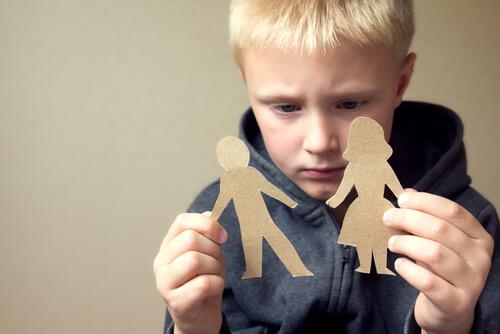Graham Greene, a British critic and writer, said that “there is always a time in childhood when the door opens and the future comes in. “While this may be real, this door can sometimes be opened too soon. We don’t know how to tell children about a breakup, because they’re too small and innocent, and we don’t wish them a future that might come too soon.
Separation is a delicate situation that also affects children, one of the main concerns of parents during separation is how to communicate to their children that they are separating, when to do so, what words to use and, most importantly, how to answer questions. They wonder. Psychologist Monica Cruz, specializing in these topics, offers us the keys to explaining the separation to children.
- It is advisable to make a prior agreement between the parents.
- That is.
- To reach an agreement between the two on what to say to their children and to do it together.
- Whenever possible.
- For this it is important to train in advance and not to let anything improvise.
In any case, if the situation becomes complex, it is important not to be angry, in fact, if any of them get angry, it is best to postpone the conversation and leave it for another time.
It’s better not to lie. A child, who is usually self-centered (especially before the age of 6 or 7), may be inclined to blame himself, so it is very important that the explanation of what happened is very clear and concrete, preventing a report based on his imagination from being created to cover information they do not have.
It’s not an easy time, but it’s important for children to feel safe in their parents’ words, it’s the perfect way for them to understand that the decision is firm.
Cruz advises telling his children that at first, when they got together, they loved each other very much and formed a family with all the love in the world, yet over time they don’t get along as well as they did at first. and feel unable to be happy together.
“In the happiest of our childhood memories, our parents were happy too. “Robert Brault.
It’s important not to disqualify on the other side. While you may be able to talk to your children about recent situations, such as more common discussions lately, this doesn’t mean you can insult or blame the other spouse.
If someone initiates disqualifications all they can do is make it difficult for them, it is information that does not bring anything, that can be misunderstood by the child and that generates tension, you have to forget phrases like: Do you want me to leave or ?she left me, for example.
It’s not a bad idea to explain to the children that you’ve tried everything, that is, both sides sought to keep the family unit solving problems, but in the end they didn’t get a good result.
It is a way for children to accept that this is not an impulsive decision, if they believe it, they can also believe that it can be reversible, so it is so important to tell the truth with confidence, so that they understand that after deliberating for a while, it has been concluded that this is the best solution for the well-being of all.
From there, children need to understand that
Of course, informing children of a rupture is not easy and their reactions can be very diverse Denial, anger, silence?In any case, it’s important to understand that your parents will stay there forever, together or apart.

